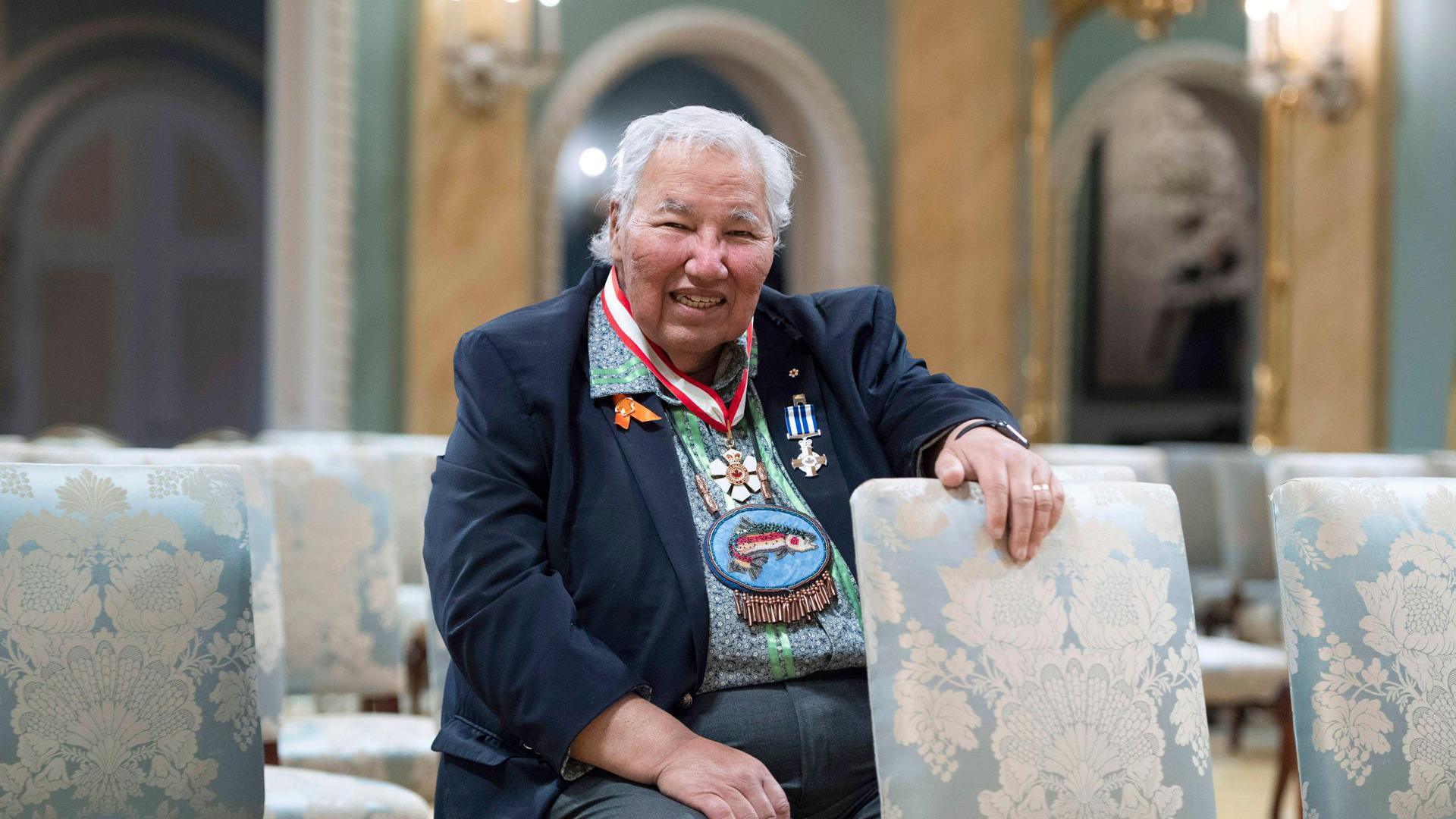Canadian Indigenous leader Murray Sinclair dies at 73

- Published
Murray Sinclair, the Anishinaabe former senator and judge who led Canada's landmark Truth and Reconciliation Commission (TRC) into the country's residential schools has died at 73, his family said in a statement.
Sinclair, a father of five and grandfather, was a national leader in Indigenous justice and advocacy, whose work led to sweeping reforms in Canadian policing, medicine, law and - most significantly - Indigenous-government relations.
According to his family, Sinclair died "peacefully and surrounded by love" at a Winnipeg hospital.
Sinclair "committed his life in service to the people", the statement said.
Born on 24 January 1951on a reserve in Manitoba, Sinclair was raised by his Cree grandfather Jim Sinclair and his Ojibway grandmother Catherine after his mother died of a stroke. Both of his grandparents were forced to attend a residential school.
Residential schools were government-funded and were part of a policy to assimilate Indigenous children and destroy Indigenous cultures and languages.
Sinclair went to law school in Manitoba at age 25, working as a lawyer for 11 years before becoming the first Indigenous judge in the province, and the second in the country.
He served as co-chair of the Aboriginal Justice Inquiry of Manitoba and directed the Paediatric Cardiac Surgery Inquest into the deaths of 12 children at a Winnipeg hospital, before taking the reigns of the TRC.
The TRC, one of most important bodies in Canada's recent history, released its final report in 2015.
Sinclair's work with the TRC, and his conclusion that residential schools amounted to a "cultural genocide" reshaped Canadians' understanding of the government-run boarding schools that devastated generations of Indigenous communities.
A linchpin in the government's policy of forced assimilation, some 150,000 First Nations, Métis and Inuit children were taken from their families between 1874 and 1996 and placed in state-run boarding schools.
The policy traumatised generations of Indigenous children, who were forced to abandon their native languages, speak English or French and convert to Christianity.
An estimated 6,000 children died while at the schools, Sinclair found.